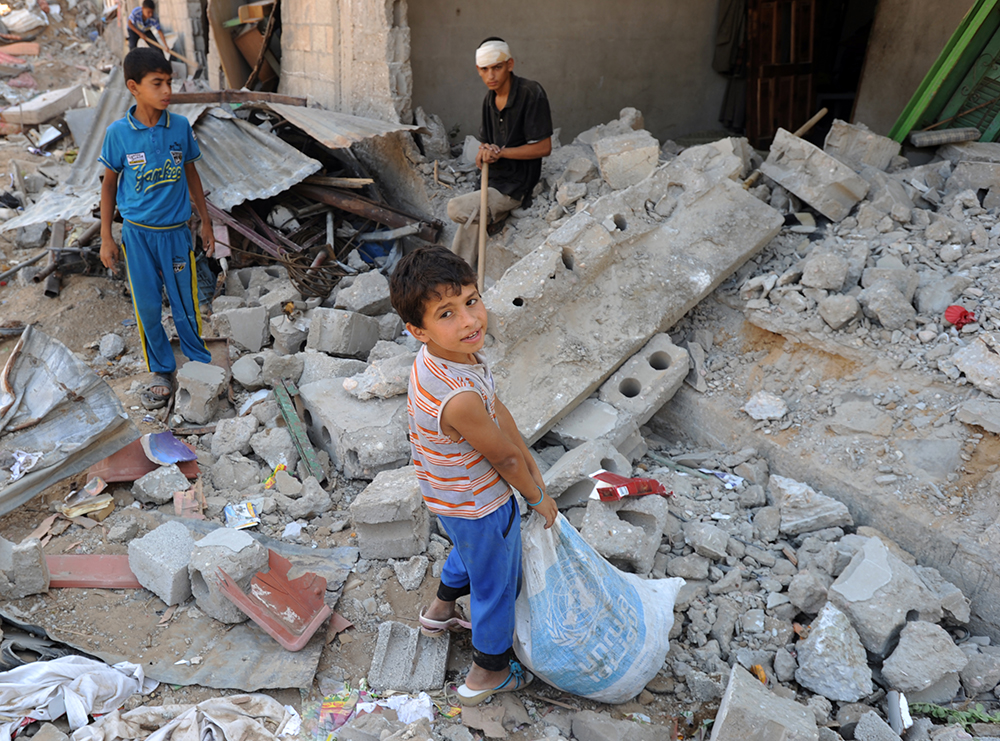
Bridging the Humanitarian Gap in Gaza
The Gaza Strip has been at the epicenter of conflict and crisis for years, with the ongoing conflict between Israel and Hamas creating a dire humanitarian situation. While headlines often focus on the political and military aspects of this protracted struggle, it’s crucial not to overlook the tremendous humanitarian gap that exists in the midst of the Gaza War. In this blog post, we condemn the humanitarian gap and call for international attention and action to address the suffering of the people in Gaza with majority being children.
Gaza is one of the most densely populated areas in the world, making it particularly susceptible to the devastating consequences of armed conflict. The humanitarian crisis in Gaza encompasses several dimensions:
- Access to Basic Needs: The people of Gaza are struggling to access basic necessities like clean water, electricity, and healthcare. The infrastructure has been severely damaged, and essential services have become scarce, leading to life-threatening conditions for many.
- Food Insecurity: The ongoing conflict has disrupted the flow of food and humanitarian aid into Gaza, resulting in alarming levels of food insecurity. Many families are unable to afford or even find enough food to feed their children.
- Medical Shortages: Hospitals and healthcare facilities in Gaza are overwhelmed, under-resourced, and ill-equipped to handle the casualties resulting from the conflict. The lack of essential medical supplies further exacerbates the suffering.
- Mental Health Crisis: The perpetual violence and instability in Gaza have taken a heavy toll on the mental health of the population, particularly children who grow up amidst constant fear and trauma.
- Displacement: The conflict has led to a massive displacement of people within Gaza. Families have been forced to flee their homes, seeking shelter in overcrowded and unsanitary conditions, further increasing the risk of disease and suffering.
International Responsibility
Addressing the humanitarian gap in Gaza is a shared responsibility. It’s not just a regional issue but a global one. There are several steps that can be taken to bridge this gap:
- Immediate Humanitarian Aid: The international community must provide immediate humanitarian aid, including food, medical supplies, and clean water to alleviate the suffering of the people in Gaza.
- Reconstruction and Infrastructure Development: Long-term solutions must focus on rebuilding the infrastructure, ensuring a reliable source of clean water, stable electricity, and healthcare facilities.
- Dialogue and Diplomacy: A peaceful resolution to the Israeli-Palestinian conflict is essential. Diplomacy and dialogue should be prioritized to bring an end to the violence and suffering.
- Mental Health Support: Efforts must be made to provide mental health support and counseling to those affected by trauma, especially children who have grown up amidst conflict.
- Protection of Civilians: It’s imperative that all parties involved in the conflict prioritize the protection of civilians, adhere to international law, and respect human rights.
Conclusion
The humanitarian gap in the Gaza War is an urgent crisis that demands the attention and action of the international community. Beyond political interests, there is a moral obligation to alleviate the suffering of the people in Gaza, who have endured far too much for far too long. We must come together to bridge this gap, provide immediate relief, and work towards a lasting peace that brings stability and hope to this war-torn region. Gaza’s humanitarian crisis cannot be ignored any longer; it’s time to act.
2 thoughts on “Bridging the Humanitarian Gap in Gaza”
Add a Comment Cancel reply
All Categories
+0123 (456) 7899
contact@example.com

This is the best tour on the east coast! It was amazing how many places we visited and what great memories we made!
We always stay at here when in town. The location is great, staff is wonderful and we love the overall feel. Beautiful view from the here.